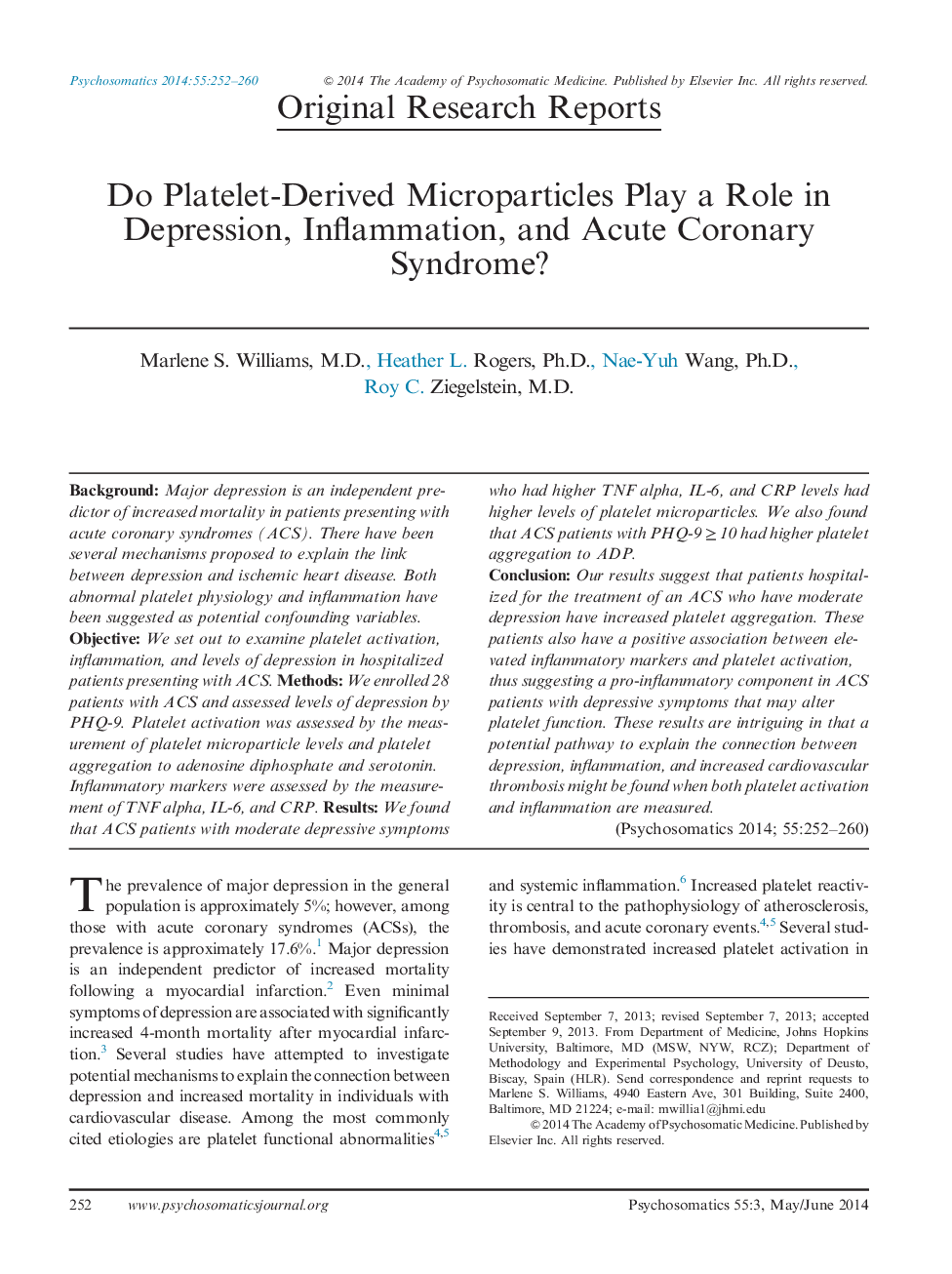| Article ID | Journal | Published Year | Pages | File Type |
|---|---|---|---|---|
| 338505 | Psychosomatics | 2014 | 9 Pages |
BackgroundMajor depression is an independent predictor of increased mortality in patients presenting with acute coronary syndromes (ACS). There have been several mechanisms proposed to explain the link between depression and ischemic heart disease. Both abnormal platelet physiology and inflammation have been suggested as potential confounding variables.ObjectiveWe set out to examine platelet activation, inflammation, and levels of depression in hospitalized patients presenting with ACS.MethodsWe enrolled 28 patients with ACS and assessed levels of depression by PHQ-9. Platelet activation was assessed by the measurement of platelet microparticle levels and platelet aggregation to adenosine diphosphate and serotonin. Inflammatory markers were assessed by the measurement of TNF alpha, IL-6, and CRP.ResultsWe found that ACS patients with moderate depressive symptoms who had higher TNF alpha, IL-6, and CRP levels had higher levels of platelet microparticles. We also found that ACS patients with PHQ-9 ≥ 10 had higher platelet aggregation to ADP.ConclusionOur results suggest that patients hospitalized for the treatment of an ACS who have moderate depression have increased platelet aggregation. These patients also have a positive association between elevated inflammatory markers and platelet activation, thus suggesting a pro-inflammatory component in ACS patients with depressive symptoms that may alter platelet function. These results are intriguing in that a potential pathway to explain the connection between depression, inflammation, and increased cardiovascular thrombosis might be found when both platelet activation and inflammation are measured.
